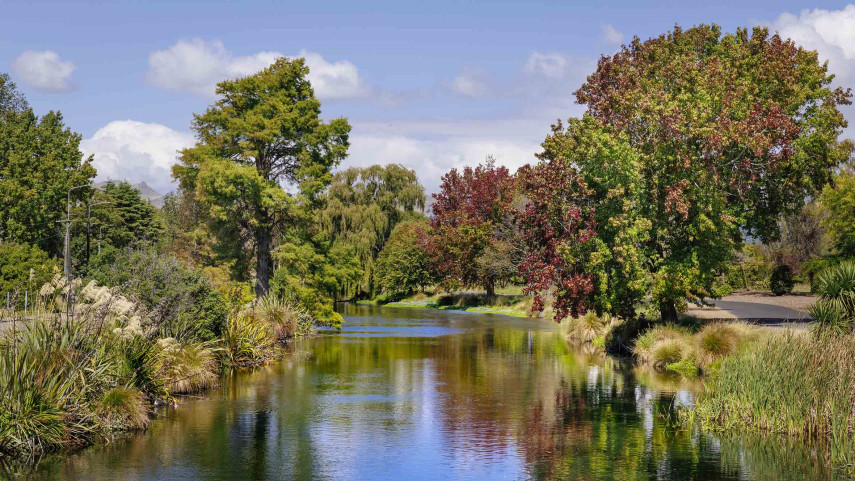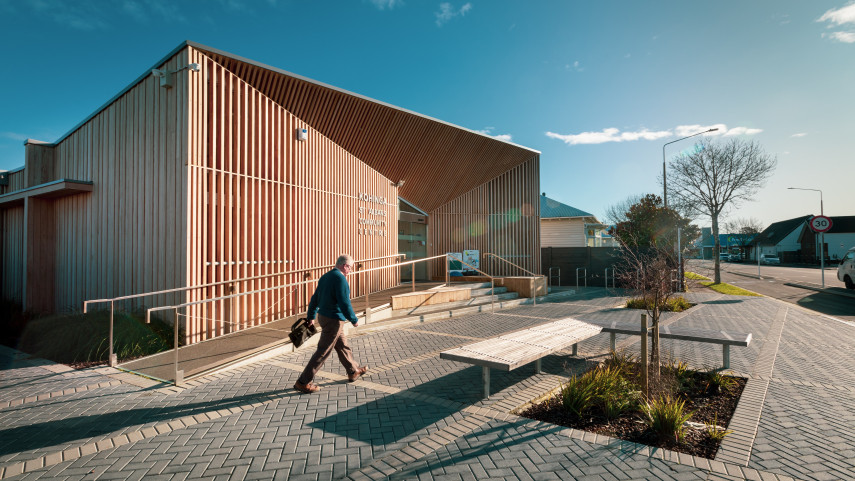Finding a way to finance your community-led place-making project can take all sorts of forms, from traditional door-knocking for donations and online crowdfunding through to Council funding or local business sponsorship.
Whichever method you choose, remember (particularly when funding organisations are financially stretched) to build a strong story around why your project will make a difference to the community and get your neighbours to champion the idea.
Contact your local Community Development Advisor(external link) for further information.
The Council offers a selection of funding opportunities designed to encourage communities to deliver community-led projects.
Community funding and grants
The Council has a number of discretionary funding sources designed to support those looking to deliver a community-led project.
Grants generally come with criteria that applications must meet to ensure the project will achieve a particular objective. Grant applications may be subject to lodgement deadlines and/or post-lodgement assessment periods, which should be factored into the timeframe for delivering your project.
These funding sources include:
- Discretionary Response Fund: To assist community groups when their project funding falls outside other Council funding criteria and/or closing dates, including for Shape your Place Toolkit-related, community-led place-making projects.
- Community Arts: The Creative New Zealand provided, but Council administered, Creative Communities Scheme (CCS) provides funding to local communities so more people can be involved in local arts activities.
- Strengthening Communities Fund: Supports community-focused organisations whose projects contribute to the strengthening of community wellbeing.
- Place Partnership Fund: Supports those seeking to strengthen connections between communities and their places and spaces to foster inclusion, local identity, shared experience and partnership.
- Sustainability Fund: Encourages innovative community, school or business projects that support the Council’s vision and strategic priorities.
- Business Improvement District (BID) Grant Fund: Provides seed funding to businesses associations to build capability and to undertake place-making initiatives that help create better local commercial centres.
- Off the Ground Funds and Light Bulb Moments Fund: The Waipuna Halswell-Hornby-Riccarton and Waihoro Spreydon-Cashmere Community Boards provide small grants to bring your community together for a project or event via their Off the Ground Funds. The Waikura Linwood-Central-Heathcote Community Board does likewise with its Lightbulb Moments Fund.
- Summer with your neighbours: Small subsidies are available for neighbourhood gatherings, such as a street party.
Securing funding for capital works arising from your project
Every three years the Council reviews its Long Term Plan (LTP). The LTP outlines the activities, services and capital works (physical works, such as new buildings, street upgrades, etc.) the Council intends to provide over the next 10 years and how it will pay for them.
Every year the Council reviews its Annual Plan (AP). The AP outlines in detail how the Council intends to finance the activities, services and capital works it will provide during that year, as directed by the LTP.
The Council will make adjustments as necessary, based on the previous year’s financial performance, updated financial figures, cost increases and inflation.
Funding requests for capital works arising from your project (e.g. community plan) can be made via public submissions on the LTP and/or AP in March/April each year.
Options available outside of the Council include fundraising, donations, local business sponsorships, trust fund grants and timebanks.
Crowd-funding
Fundraising small donations through an online platform easily shared across social media can be effective for large and small projects. Popular crowdfunding platforms in New Zealand include:
Local business sponsorships
Community-led place-making projects can be of interest to local businesses or corporates looking to give back to the community. This can be through in-kind donations (e.g. products or services), one-off cash payments or volunteered staff time.
Funding from businesses that are franchises or chain stores is most likely to be available through the company’s head office, but it’s worth speaking to the local business owner.
Charitable funding sources
Charitable trusts and philanthropic organisations often have a small grants section for supporting community-led projects, as well as larger grants for infrastructure projects. These include:
- New Zealand Community Trust(external link)
- Rātā Foundation(external link)
- Creative New Zealand(external link)
- Ngāi Tahu Fund(external link)
- The Tindall Foundation(external link)
- The Lion Foundation(external link)
- Department of Internal Affairs(external link)
- Department of Conservation(external link)
- Christchurch Airport(external link)
Timebanks
A form of complementary currency that uses time rather than money as the medium of exchange. These are effective for creating an action-oriented web of social connection and a publicly available community skills inventory.
Timebanks can take some time to grow and require high levels of community interest and willingness to participate. See:
Further funding options are identified in Funding Options for Community Groups. [PDF, 2.4 MB]
When funding your project, the following information regarding cost-sharing, participative budgeting and strategic planning may also assist.
Cost-sharing agreements
An agreement between two or more parties to share the costs of an initiative, such as the painting of a mural to deter graffiti from a shared wall in a commercial centre by adjoining business owners.
Participative budgeting
A system that allows people to influence how a budget is allocated. This usually takes the form of voting on a series of proposals until the total budget has been distributed. This process can be used for large or small-scale community-led projects.
Participative budgeting works best for communities that are engaged and eager to be involved in shaping their spaces, but who may not respond as well to traditional methods of public engagement. It helps to engage communities in the decision-making and ensures they have a stake in the final delivery.
To undertake a participative budgeting exercise a group should start by determining the available funding and the costs of different options before asking people what they want most. Voting and decisions can be made through online polls or group workshops. The following may assist:
Check the relevance of existing strategic plans and statutory documents
Checking existing strategic plans and statutory documents applicable to your neighbourhood or commercial centre can be useful. These may provide information that can help support funding applications for your project.
Related news

Ōtākaro Avon River Corridor shines, grows since quake
In the wake of the 15th anniversary of the 22 February earthquakes, we’re taking a look at different Council aspects of the rebuild, and how far we’ve come. Next up, the residential red zone's Ōtākaro Avon River Corridor (OARC).
26 Feb 2026
Rebuilding our communities
Following the 15th anniversary of the 22 February earthquake, we’re looking at different Council aspects of the rebuild, and how far we’ve come. Next up, community hubs and housing facilities.
25 Feb 2026
Exemption granted for central city noise plan change
Work will continue on the Central City Noise plan change.
13 Feb 2026